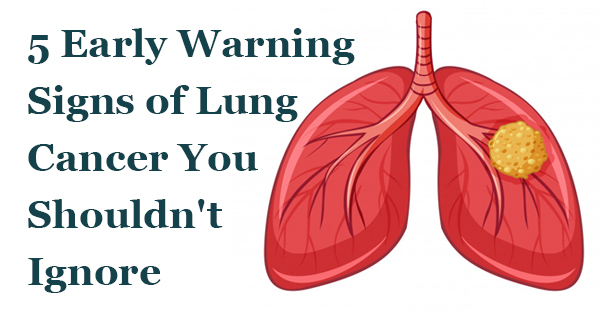Some people think that if they don’t smoke, they don’t have to worry about lung cancer. This, unfortunately, is not true. Here are some things to watch out for that may indicate lung cancer, even if you don’t smoke.
Persistant Cough
It’s normal to have a cough once in a while if you get sick, but a cough should not linger for more than a month. You also should be wary of blood or rust-colored mucus coming up in your cough.
Sudden Weight Loss
If you’re dieting and working out, losing weight is expected. However, if you suddenly drop of 10 pounds or more with no explanation, it can be associated with lung cancer. You will also notice a decrease in appetite along with weight loss.
Hoarse Voice
Lung cancer can start pressing on the nerves that control your larynx, or voice box. This can cause your voice to change, making it sound deeper, raspier, or hoarse. This can also be a symptom of a common cold, but if the hoarseness persists for more than two weeks, it should be examined by a doctor.
Wheezing
Wheezing happens when your lungs are constricted, inflamed, or blocked in some way. You may notice it is difficult to breathe and you are wheezing. Don’t ignore this as a sign of allergies or sickness. Wheezing is highly associated with lung cancer.
Bone Pain
Lung cancer has the potential to spread to the bones in your body and produce pain. The pain may get worse at night while resting on certain areas of your body or with movement. The back and hips are common pain spots.
Local Radon Mitigation and Abatement
Radon is a dangerous gas that the Surgeon General warns is the second leading cause of lung cancer in the United States today. Local radon mitigation and abatement is the process of testing for radon and bringing the levels down to the EPA standard.
It is important not to ignore these signs, and it is equally important to get your home tested for radon. Early detection is key for recovery and survival, so you want to do all you can to avoid and prevent lung cancer.


Recent Comments